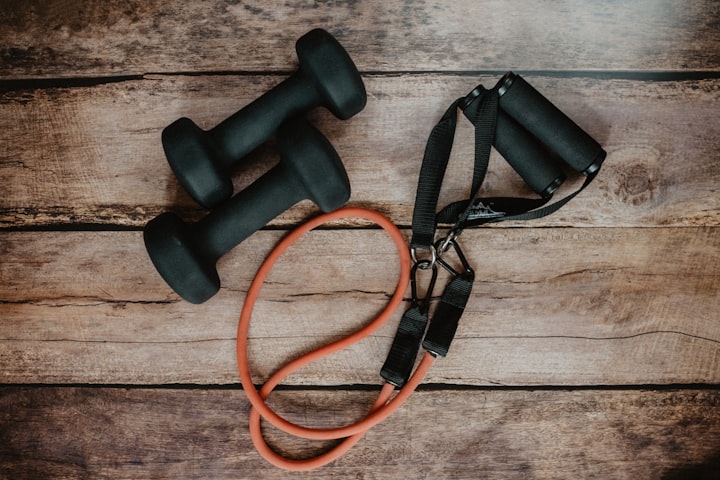
Athletes have increased nutrient needs compared to non-athletes. Their intense training regimens put a lot of stress on their bodies and increase requirements for energy, protein, vitamins, and minerals.
Despite increased needs, many athletes still have suboptimal intakes of key nutrients. Nutrient deficiencies can impair exercise performance and health.
Some common deficiencies might come as a surprise.
The Blood Mineral
Iron deficiency is one of the most common deficiencies among athletes, especially female athletes and runners.
Iron is essential for oxygen transport and energy production.
Low levels can reduce performance and cause fatigue, decreased endurance, reduced immunity and thyroid function.
Athletes, especially female athletes, are at an increased risk of iron deficiency anemia, also known as "sports anemia."
This condition impairs the body's ability to transport oxygen efficiently during exercise.
Iron losses through sweat, urine, feces, and menstrual blood make it difficult for active individuals to maintain optimal iron levels. Inadequate calorie intake and restricted diets may also impair iron absorption.
To help maintain optimal iron levels, athletes should include iron-rich foods like meat, poultry, seafood, beans, dark leafy greens, iron-fortified cereals, and prune juice. Vitamin C aids iron absorption, so pair these foods with vitamin-C-rich options.
If deficiency is suspected, get tested. Under a doctor's supervision, iron supplements, such as ferrous sulfate, ferrous fumarate, or ferrous gluconate may be warranted.
The Bone Mineral
Calcium is essential for bone health and plays a role in muscle contraction. Low levels are especially concerning for female athletes, as they have an increased risk of bone injuries related to calcium deficiency and bone loss.
Low energy availability, menstrual dysfunction and poor calcium intake contribute to suboptimal calcium levels. Distance runners and dancers are among the athletes most susceptible to low calcium levels.
Getting adequate calcium can help prevent stress fractures, which occur most frequently in the legs and feet of runners.
Athletes should aim to meet the Recommended Dietary Allowance (RDA) for calcium, which is 1,000 mg per day for adults ages 19–50. Excellent sources include dairy products, calcium-fortified plant milks and juices, tofu, legumes, leafy greens, and calcium-supplemented foods.
The Sun Vitamin
Vitamin D is needed for calcium absorption and bone health. Deficiency is common in athletes, especially if sun exposure is limited.
Darker skin color, training primarily indoors, living in northern latitudes, and wearing sunscreen can increase the risk of deficiency.
Symptoms of deficiency include muscle weakness, fatigue, bone loss, and increased injury risk.
Athletes should have their vitamin D levels tested regularly. Aim for blood levels over 30 ng/ml. Meeting the RDA of 600 IU per day from foods like fatty fish, fish oil, eggs, fortified foods, and a supplement will help maintain optimal levels for most.
Those with dark skin or deficiency may need 2,000–5,000 IU per day.
The Electrolyte Balance
Magnesium plays vital roles in energy production, muscle contractions, and bone health.
Athletes have 10–20% higher magnesium needs than less active people.
Deficiency can reduce exercise performance and impair recovery. Symptoms include muscle cramps, fatigue, anxiety, and trouble sleeping.
Magnesium losses in sweat and urine combined with limited dietary intake contribute to deficiency. Food sources include nuts, seeds, legumes, leafy greens, avocado, yogurt, and dark chocolate.
Supplements like magnesium glycinate and magnesium citrate may be beneficial for those with deficiency or symptoms.
The Immune System Vitamin
Vitamin C is important for immune function and tissue repair. Heavy training can increase requirements by 50–100%.
Although overt deficiency is uncommon, marginal deficiency may occur in 10–14% of athletes.
This can weaken immunity and increase infection risk [13].
Athletes with deficiency are advised to consume at least 200 mg per day. Excellent sources include citrus fruits, bell peppers, dark leafy greens, broccoli, berries, tomatoes, mango, and papaya.
The Bs
B vitamins play key roles in energy production and red blood cell production. Deficiencies in B vitamins like B12, folate, B6, and riboflavin are relatively common among athletes.
Deficiency symptoms include fatigue, decreased performance, anemia and impaired immune function.
Vegetarian and vegan athletes are at a greater risk of deficiency in some cases.
Good sources of B vitamins for athletes include nutritional yeast, beans, lentils, spinach, broccoli, avocado, eggs, fish, poultry, red meat, and fortified grains. Vegans may need supplements.
The Carbs
Maintaining proper carbohydrate stores in your body is vital for sustaining energy during training and competition.
While not a deficiency per se - the body has no essential need for carbs - this macronutrient does help with optimal performance.
Low carbohydrate intake might reduce speed, strength, and concentration. It also causes fatigue, increased effort, lack of coordination, and irritability.
Athletes should aim to consume adequate carbohydrates before, during and after exercise. Carb-rich foods like whole grains, fruits, starchy vegetables and legumes help optimize stores.
The Muscle Builder
Athletes need greater amounts of protein to repair and rebuild muscle tissue broken down during training. Some also intentionally restrict protein intake to maintain a low body weight.
Consuming inadequate protein reduces muscle growth, slows recovery, and impairs performance. It may also lead to loss of muscle mass.
Experts recommend consuming 0.5–0.7 grams of protein per pound (1.0–1.5 grams/kg) of body weight when training intensely.
To optimize protein intake, consume a source of high-quality protein like eggs, dairy, meat, fish, legumes, or protein powder at each meal.
The Fatty Acids
Omega-3 fats like EPA and DHA play important roles in muscle function and recovery after exercise. Many athletes fall short on these beneficial fats.
Low omega-3 levels can increase inflammation and reduce endurance.
Symptoms of deficiency include fatigue, sore joints, and impaired immunity.
Aim to get 2–3 grams of combined EPA and DHA per day by eating at least two servings of fatty fish per week or a couple of tablespoons of plant-based ALAs like flaxseeds.
Those avoiding seafood can also use an omega-3 supplement.
Water
Dehydration can occur when athletes fail to adequately replace fluids lost through sweat. Even small fluid losses of 2% of body weight can harm performance and health.
Symptoms range from thirst, fatigue, dizziness, cramps, and headaches to more severe issues like heat injury and exhaustion.
Pre-hydrating before exercise and replacing fluids and electrolytes during and after training and competition are key. Weighing yourself before and after exercise helps assess fluid losses.
Athletes should aim to limit electrolyte losses through sweat and optimize hydration status for better performance and safety.
Key Takeaways
Athletes are prone to suboptimal intake and deficiencies in several key nutrients like iron, calcium, vitamin D, magnesium, B vitamins, carbohydrates, protein, and omega-3 fats.
Deficiencies can impair performance, endurance, recovery, bone health, and immunity.
Athletes should aim to meet increased needs through food sources and supplementation when necessary. Working with a sports dietitian can help optimize nutrition.
Staying hydrated before, during, and after training is also critical for maintaining fluid balance.
The Bottom Line
Being an athlete takes a toll on the body. One that is met with increased nutritional needs.
Optimizing nutrition intake is critical for athletes to perform at their best and stay healthy.
By being aware of the most common nutritional deficiencies among athletes, steps can be taken to properly fuel for training and competition.






Comments
There are no comments for this story
Be the first to respond and start the conversation.